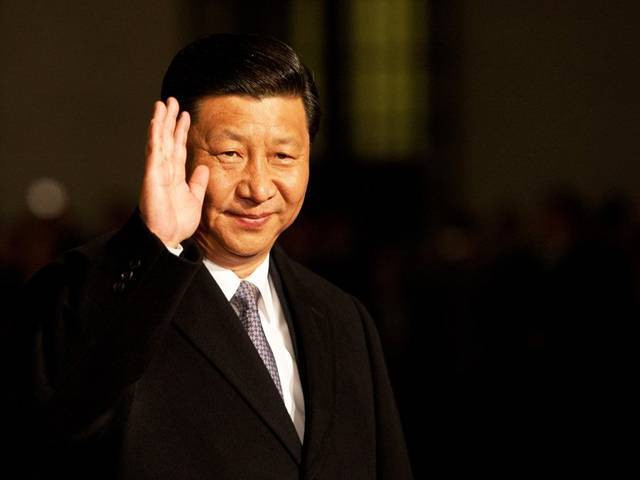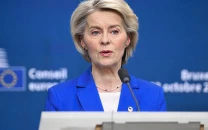China activist tried for subversion, 4th case in 4 days
The activist sought to turn public opinion against the govt and attempted to overthrow socialist system, says court

China's President Xi Jinping delivers his speech during the opening session of the US - China Strategic and Economic Dialogues at Diaoyutai State Guesthouse in Beijing on June 6, 2016. AFP PHOTO
Christian activist Gou Hongguo had gone abroad to be trained in "subverting state power", the Second Intermediate People's Court in the northern city of Tianjin said on a verified social media account.
He sought to turn public opinion against the government and attempted to overthrow the socialist system, among a litany of other offences, it said.
Gou was given three years in prison, suspended for three years, the court statement said, adding he pleaded guilty and said he would not appeal.
China releases activist as UN's Ban calls for civil society respect
The term is relatively light by the standards of dissident trials in China, where the courts are controlled by the ruling Communist Party.
But it was not clear whether he would be released. Another of the defendants tried this week, Zhai Yanmin, was also given a suspended sentence, but campaign groups said he had yet to return home and his whereabouts remained unknown.
Gou's wife Fan Lili, who gave birth to their son 16 months ago, told AFP: "I'm happy as long as he can come home, and my child can have a father to raise him."
Gou, who had protested against forced evictions, was one of more than 200 activists and lawyers involved in cases the party considers sensitive who were detained in July last year in the so-called 709 crackdown -- named for its main date.
"The hardest thing was not knowing where my husband was and whether he was living or dead," said Fan.
She was not allowed to attend the trial, having gone to the courthouse earlier this week to demand information about his fate, only to be bundled away by security personnel and returned to her home province of Shanxi.
"I am very strictly monitored, and cannot accept interviews or meet with other family members," she said. "Otherwise there will be a lot of trouble."
Gou's trial was the fourth at the Tianjin court this week, and followed that of high-profile rights lawyer Zhou Shifeng, whose Fengrui law firm -- known for taking on cases of dissident scholars, victims of sexual abuse and members of banned religious groups -- has been at the centre of the 709 crackdown.
Zhou was on Thursday given seven years in prison for subversion.
Hu Shigen, a Christian campaigner who was a member of the same underground church as Gou, was jailed for seven and a half years on Wednesday.
That came a day after activist Zhai's three-year suspended sentence.
"Just because people are released doesn't necessarily mean that they will be completely free in China, where they can for example be released to a detention centre," Kit Chen, executive director of the China Human Rights Lawyer Concern Group, told AFP.
She cited the example of legal assistant Zhao Wei, detained in the 709 crackdown and released on bail last month according to police, but whose family have been unable to contact her.
"All the trials were pre-arranged showcase trials," Chen said of the Tianjin proceedings, adding that each one had taken a matter of hours from opening to verdict and sentence.
China warns US of 'serious consequences' over Washington plaza name
The court cited Gou as saying that he had "continuously reflected deeply upon my own crimes, and now believe that I was misled by so-called 'democratic' thinking from the West", adding he had been "used by foreign forces and people with ulterior motives".
The official Xinhua news agency quoted him saying: "I'm grateful to the government for saving me."
Only court-appointed defence lawyers were present.
Authorities insist the trials are open, with the court stating that about 40 people including politicians, legal scholars, and "civilian representatives from all walks of life", as well as mainland and foreign media outlets, were present.
US State Department spokesperson Mark Toner said the charges were "vague and apparently politically motivated" and called on officials to release the remaining "709" detainees "and remove restrictions on their freedom of movement and professional activities".



















COMMENTS
Comments are moderated and generally will be posted if they are on-topic and not abusive.
For more information, please see our Comments FAQ